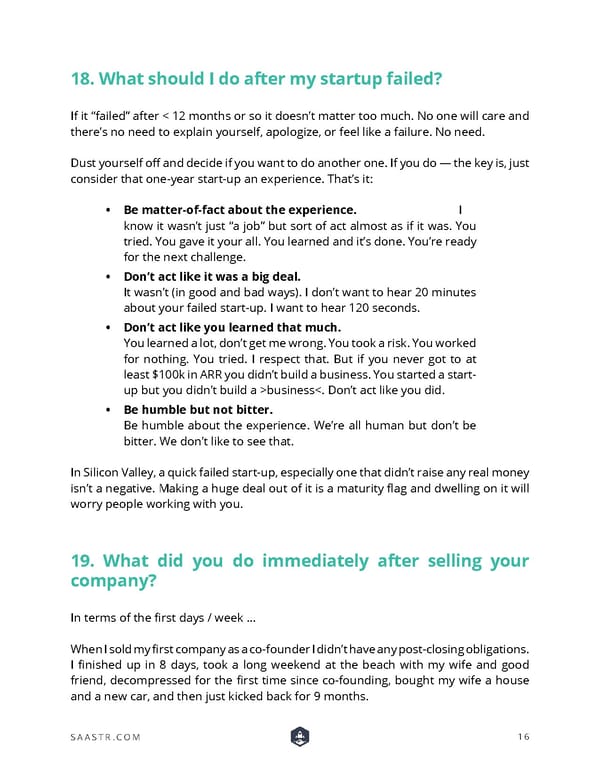18. What should I do after my startup failed? If it “failed” after < 12 months or so it doesn’t matter too much. No one will care and there’s no need to explain yourself, apologize, or feel like a failure. No need. Dust yourself off and decide if you want to do another one. If you do — the key is, just consider that one-year start-up an experience. That’s it: • Be matter-of-fact about the experience. I know it wasn’t just “a job” but sort of act almost as if it was. You tried. You gave it your all. You learned and it’s done. You’re ready for the next challenge. • Don’t act like it was a big deal. It wasn’t (in good and bad ways). I don’t want to hear 20 minutes about your failed start-up. I want to hear 120 seconds. • Don’t act like you learned that much. You learned a lot, don’t get me wrong. You took a risk. You worked for nothing. You tried. I respect that. But if you never got to at least $100k in ARR you didn’t build a business. You started a start- up but you didn’t build a >business<. Don’t act like you did. • Be humble but not bitter. Be humble about the experience. We’re all human but don’t be bitter. We don’t like to see that. In Silicon Valley, a quick failed start-up, especially one that didn’t raise any real money isn’t a negative. Making a huge deal out of it is a maturity flag and dwelling on it will worry people working with you. 19. What did you do immediately after selling your company? In terms of the first days / week ... When I sold my first company as a co-founder I didn’t have any post-closing obligations. I finished up in 8 days, took a long weekend at the beach with my wife and good friend, decompressed for the first time since co-founding, bought my wife a house and a new car, and then just kicked back for 9 months. SAASTR.COM 16
 The Ultimate Guide For Scaling Sales & Raising Capital Page 19 Page 21
The Ultimate Guide For Scaling Sales & Raising Capital Page 19 Page 21